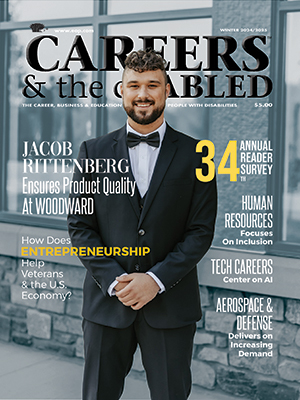


According to the World Health Organization (WHO), by following the 20-20-20 rule, you can help prevent or slow down the progression of myopia, a condition also known as "shortsightedness" or "nearsightedness" where a person cannot see objects far away clearly.
Overview
According to the American Foundation for the Blind, "Visual Impairment" is a general term that describes a wide range of visual function from low vision through total blindness. Visual impairment differs from person to person in ways such as in their ability to see things clearly, to perceive light, to perceive distance, or to perceive movement/objects that aren't directly in front of the person.
Visual Impairment can also be brought on by different medical conditions, injuries, infections, vitamin deficiency, and high blood pressure, according to the Cleveland Clinic. Different levels of visual impairment are noted based on the person's ability to perceive light and sharpness of vision, according to the American Foundation for the Blind:
College Support
The Disability Services Office's purpose is to provide testing and classroom accommodations and referrals for on-campus and off-campus resources that will ensure students with disabilities the opportunity to receive a college education on a level playing field with their peers.
Students with visual impairments and disabilities can request accommodations by sending in proof of your disability via medical documentation or IEP forms. To see your options for submitting forms, please visit the Accommodations and Disability Services webpage.
Below is a table for the types of accommodation a student with a visual impairment may discuss with their healthcare provider about requesting to assist with pursuing their education, compiled from the Fact Sheet of the American Optometric Association (PDF).
| Service | Format | Example(s) |
|---|---|---|
| Screen-enlarging/document reading software | On-site/Off-campus | Applications on phones/tablets/computers that read content aloud or enlarge content |
| Additional time for assignments/tests | On-site/Off-campus | Scheduling with the Testing Center, space will be reserved for you to take your test in a quite location; assignments may have altered due dates/times |
| Reader for tests | On-site | Scheduling with the Testing Center, a staff member will be assigned to help read the test |
|
Magnifiers
|
On-site | Using a magnifier to work on assignments in class or in the Testing Center when scheduled. |
| Environmental Adaptations | On-site/Off-campus | Lighting changes for classrooms, preferred seating near instructor, contrast enhancement options for visual materials |
| Large Keypads | On-site | Adaptive keyboards for computers |
| Large Print Material | On-site | Working with your instructor and the library to secure course materials and supplements in a large print format |
| Audio Aids | Off-campus | Instructor increasing the amount of course content that is available in audio format, such as lectures and assignments. |
Community Resources
Talking Books & Braille Library of Louisiana
An affiliate of the Library of Congress's National Library Service for the Blind and Print Disabled, TBBL provides access to more than 164,000 audio and braille books, 25,000 large-print books, and playback machines to anyone with permanent or temporary disabilities. There is no charge for TBBL, and more than 6,000 Louisianans use the service.
Louisiana Association of Blind Students (LABS)
A student organization of the National Federation of the Blind of Louisiana, an affiliate of the National Federation of the Blind. LABS members meet a few times a year to network, share accomplishments, and receive advice on problems they may be facing. Each year, the Louisiana Association of Blind Students hosts Student Seminar—a fun, interactive weekend gathering for blind and visually impaired high school and college students.
Affiliated Blind of Louisiana Training Center
An organization dedicated to teaching people who are blind and deaf-blind the skills that lead to independence, employment, and community integration, while also educating the public about blindness and informs consumers of services available to them. Check your local library for dates and times of local Affiliated Blind support group meetings.
National Resources
VisionAware, by the American Printing House for the Blind ConnectCenter
VisionAware is a free, easy-to-use informational service for adults who are blind or have low vision, their families, caregivers, healthcare providers, and social service professionals. Visitors will find tips and resources on living with blindness or low vision; information on eye diseases and disorders; and a searchable, free directory of services.
National Federation of the Blind
The National Federation of the Blind is the oldest and largest nationwide organization of blind Americans. Through its network of blind members, the organization coordinates many programs, services, and resources to defend the rights of blind Americans, provide information and support to blind children and adults, and build a community that creates a future full of opportunities.
 Journal of Blindness Innovation and Research (Electronic Resource)
by
National Federation of the Blind
Journal of Blindness Innovation and Research (Electronic Resource)
by
National Federation of the Blind
 Careers & the disABLED Magazine (Print) Available at Fletcher Library
Careers & the disABLED Magazine (Print) Available at Fletcher Library
 This website is licensed under a Creative Commons Attribution 4.0 International License unless otherwise noted.
This website is licensed under a Creative Commons Attribution 4.0 International License unless otherwise noted.

